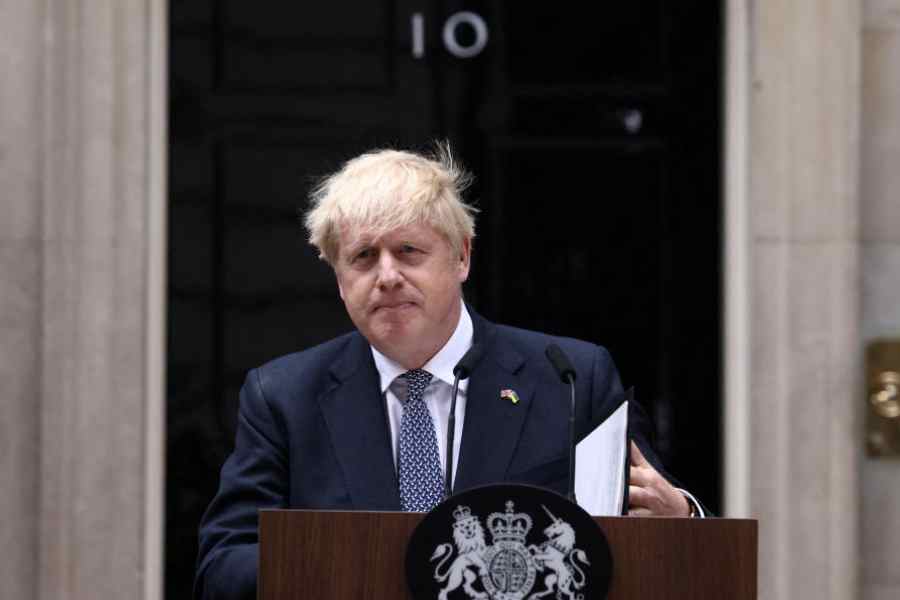UNLEASHED
By Boris Johnson
HarperCollins, Rs 1099
Why do politicians write memoirs? In the age of tweets, of instant communication, of leaked comments denied an hour later, do books still have a place in the world of politics? Some politicians seem to crave the particular form of attention afforded by books. Joining the club, the former British prime minister, Boris Johnson, has published a lengthy account of his years in public life. It is a narrative of political life, but with little political philosophy. The tone is deliberately light, sometimes funny, as when he describes the fiasco of his infamous “Peppa Pig” speech. He describes one of his predecessors, David Cameron, as “a good-natured and friendly sort of chap.” He finds the origin of his Euroscepticism in a bizarre attempt by some Brussels bureaucrat to ban prawn-cocktail-flavoured crisps for health reasons. He describes how to move the hands when dancing in India. He also explains that he went to India in search of “a proper free-trade deal” but addresses the history of the relationship between the two countries in one sentence. There is little that goes below the surface of things. Even the policy of “levelling up,” whereby the regions that have suffered most must all be given a chance and opportunities given to every individual, appears as a mantra repeated endlessly (“Then I hit on a phrase. It was all about levelling up.”).
Unleashed is also an attempt at setting the record straight. The extraordinary rise (under his leadership, the Conservative Party won in 2019 the largest share of the vote since Margaret Thatcher’s 1979 landslide victory) and the no-less extraordinary fall of Johnson three years later, plagued by a series of scandals, do not occasion political reflection. He cannot understand the treasons. He blames his misjudgement, his half-hearted apology over the “Partygate” (a “miserable and wildly inflated affair”), his naivety, his lack of cajoling of backbenchers because of the Covid crisis or the BBC. He still sees Brexit as an extraordinary opportunity for “global Britain,” and the “Remain” camp as a conglomerate of ruling classes, the Establishment, and Brussels bureaucrats, while his aim was to “deliver a version of Brexit in which the UK would have genuine independence.” He gives a trenchant explanation of the causes of the debacle of the 2024 election. He ends with ten points of things to fix (ranging from housing to capitalism, by way of immigration and climate change), perhaps the basis for a future manifesto. On Ukraine, though, the (critical) reader must acknowledge the principles and the tenacity of Johnson, and of his defence secretary, Ben Wallace. His relationship with the Ukrainian president, his relentless opposition to any form of appeasement with Vladimir Putin, his passionate pleas for support to Ukraine, even when other allied governments were less enthusiastic, are an undeniable part of the legacy.
Johnson’s memoir is the continuation of his public life by other means. It is an act of political communication rather than of political reflection. It is a conversation with an audience rather than a meditation on the lessons of history. It offers anecdotes and occasional insights instead of illuminating the past twenty years of British and world politics.










